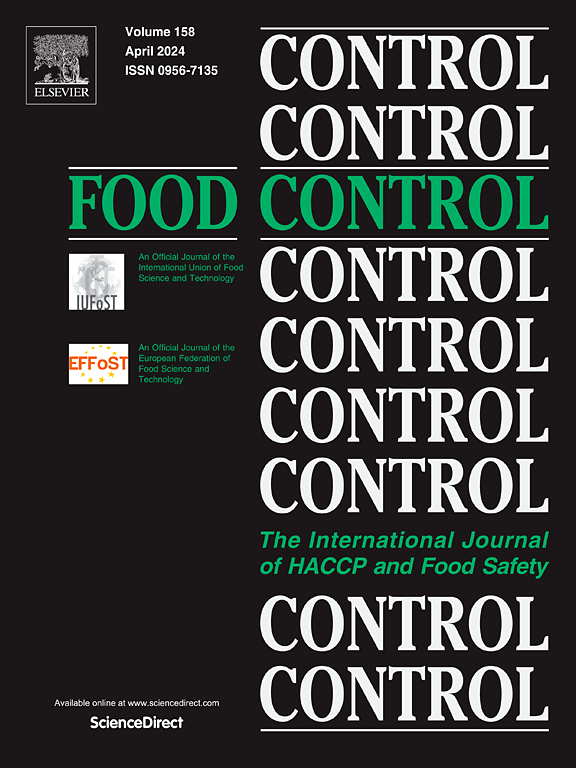Blockchain technology for risk management in food supply chain: A systematic literature review on emerging themes and sustainability implications
IF 6.3
1区 农林科学
Q1 FOOD SCIENCE & TECHNOLOGY
引用次数: 0
Abstract
Food supply chains (FSCs) are increasingly vulnerable to systemic disruptions, intensified by black swan events and growing sustainability demands. Blockchain technology (BCT) has emerged as a key enabler of transparency, traceability, and decentralized coordination in FSCs. This study conducts a systematic literature review (SLR) of 68 peer-reviewed articles published between 2020 and 2025, applying the context-intervention-mechanism-outcome (CIMO) framework for analysis and strategic topic mapping using SciMAT. This study introduces the Dynamic Supply Chain Capability (DSCC) lens to assess BCT's strategic role in FSCs. Findings reveal that BCT primarily supports risk identification and monitoring through traceability and immutable data recording, with adoption driven by trust-building and responsiveness to disruption. Despite increasing interest in BCT in FSCs, its integration with AI and other technologies for precision farming and food distribution remains underexplored. In addition, by mapping existing studies to the United Nations Sustainable Development Goals (SDGs), this study finds that SDG 2 and SDG 12 are the most frequently addressed, while SDG 8, SDG 10, SDG 13, and SDG 16 present promising areas for future investigation. This study contributes by synthesizing risk types, SCRM process alignment, and sustainability linkages, while identifying future research potential in BCT-enabled Agriculture 4.0 and food distribution systems amid rising global uncertainties. The findings offer both conceptual insights and practical guidance for integrating BCT into resilient and inclusive FSC strategies.
食品供应链风险管理的区块链技术:对新兴主题和可持续性影响的系统文献综述
食品供应链(fsc)越来越容易受到系统性中断的影响,黑天鹅事件和不断增长的可持续性需求加剧了这种影响。区块链技术(BCT)已成为fsc透明度、可追溯性和分散协调的关键推动者。本研究采用情境-干预-机制-结果(CIMO)框架对2020 - 2025年间发表的68篇同行评议文章进行了系统文献综述(SLR),并利用SciMAT进行了分析和战略主题映射。本研究引入动态供应链能力(DSCC)的视角来评估BCT在fsc中的战略作用。研究结果显示,BCT主要通过可追溯性和不可变数据记录来支持风险识别和监控,其采用受到信任建立和对中断的响应的驱动。尽管人们对BCT在fsc中的应用越来越感兴趣,但其与人工智能和其他精准农业和食品分配技术的整合仍未得到充分探索。此外,通过将现有研究与联合国可持续发展目标(SDG)进行对比,本研究发现,SDG 2和SDG 12是最常被提及的,而SDG 8、SDG 10、SDG 13和SDG 16则是未来调查的有希望的领域。本研究通过综合风险类型、供应链管理过程一致性和可持续性联系做出贡献,同时确定在全球不确定性上升的背景下,bct支持的农业4.0和粮食分配系统的未来研究潜力。研究结果为将BCT纳入弹性和包容性FSC战略提供了概念见解和实践指导。
本文章由计算机程序翻译,如有差异,请以英文原文为准。
求助全文
约1分钟内获得全文
求助全文
来源期刊

Food Control
工程技术-食品科技
CiteScore
12.20
自引率
6.70%
发文量
758
审稿时长
33 days
期刊介绍:
Food Control is an international journal that provides essential information for those involved in food safety and process control.
Food Control covers the below areas that relate to food process control or to food safety of human foods:
• Microbial food safety and antimicrobial systems
• Mycotoxins
• Hazard analysis, HACCP and food safety objectives
• Risk assessment, including microbial and chemical hazards
• Quality assurance
• Good manufacturing practices
• Food process systems design and control
• Food Packaging technology and materials in contact with foods
• Rapid methods of analysis and detection, including sensor technology
• Codes of practice, legislation and international harmonization
• Consumer issues
• Education, training and research needs.
The scope of Food Control is comprehensive and includes original research papers, authoritative reviews, short communications, comment articles that report on new developments in food control, and position papers.
 求助内容:
求助内容: 应助结果提醒方式:
应助结果提醒方式:


